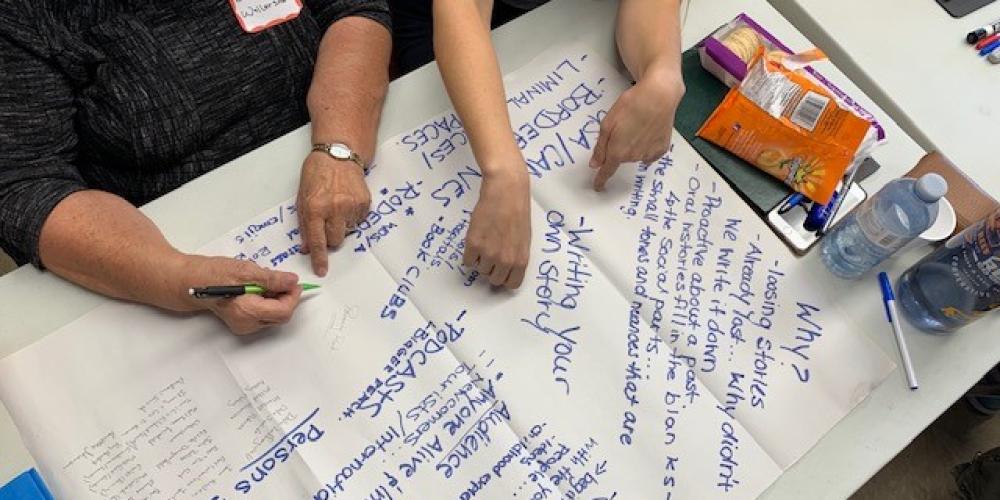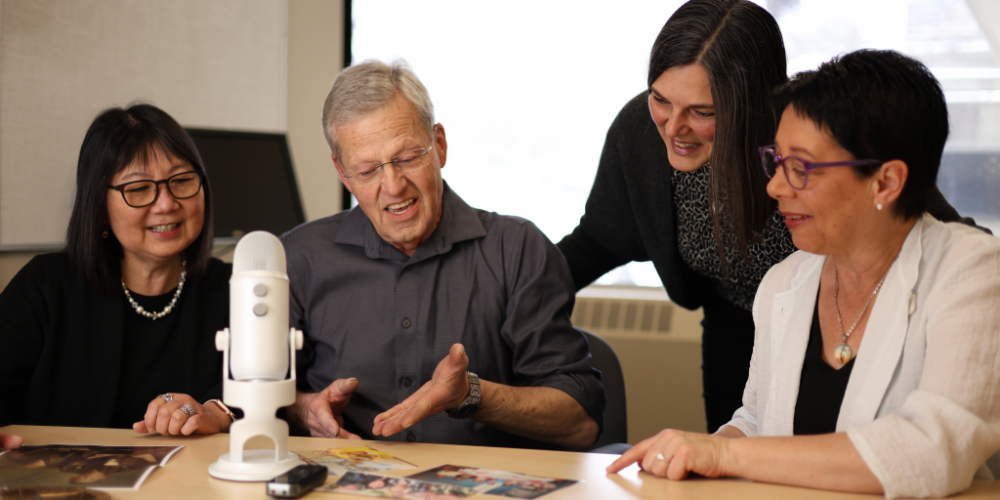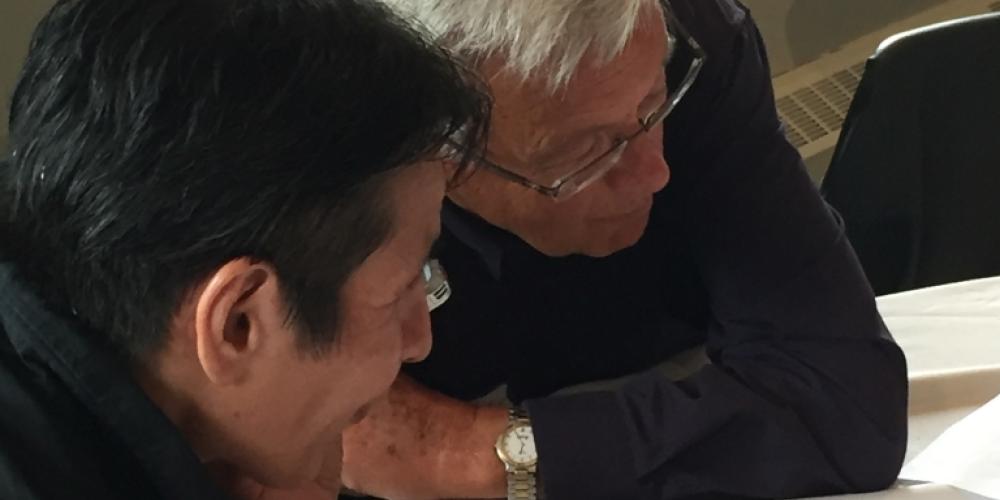 The 2024 Oral History Summer Institute
The 2024 Oral History Summer Institute
May 9 - June 13, 2024
Be part of the 4th annual Oral History Summer Institute at the Centre for Oral History & Tradition! The 2024 COHT Oral History Summer Institute will be held virtually with synchronous meetings via Zoom on Thursdays from 12-2:45 p.m. MT for six weeks. Additional resources and materials will be provided through Moodle.
The Oral History Summer Institute is designed for participants to get hands-on experience with oral history project design, recording technology, and interview techniques. Whether you are starting your first oral history project, or you are ready to enhance your skills as an oral history interviewer, the summer institute’s combination of instructional, workshop, and feedback sessions has something to offer participants at a variety of levels and interests. The Institute welcomes anyone interested in oral history, including family historians and genealogists, public/community historians, researchers, community organizers, students, and academics.
Registration is now open!
Learn more and register
Cost: $395
* A senior discount is available. Please contact Carly Adams at carly.adams@uleth.ca for more information.
Note: For community members, if you are having difficulty registering, please contact Continuing Education at the University of Lethbridge at continuing.education@uleth.ca
The Oral History Summer Institute engages with many oral history approaches, such as Indigenous and queer oral history methods.
Participants will meet once weekly to learn about oral history methods and theories, workshop practical oral history skills, and engage with practicing oral historians and esteemed guest speakers on a variety of contemporary topics.
The Institute offers participants the opportunity to receive feedback on interview questions, consent forms, project organization, and many other skills that are part of conducting oral history.
Learning Objectives
By the end of this course each student should be able to:
- Design a small oral history project from start to finish; or refine an existing project
- Understand foundational oral history theory about memory, narrative, and researcher-narrator relationships;
- Understand and engage foundational ethics requirements of oral history interviewing;
- Create a consent form that protects both your project and the interviewee;
- Learn how to record an interview on a variety of platforms including a digital recorder, a cell phone, or via online video chat software (e.g. zoom);
- Identify ideal interview environments;
- Thoughtfully apply oral history theories and methods to address a variety of narrators’ needs, requests, concerns, and backgrounds;
- Effectively and professionally transcribe an interview;
- Create and use a metadata spreadsheet;
- Understand how to donate interviews and transcripts to an archives;
- Develop a publication or dissemination plan for your oral history project.
Each participant will need
- Access to a recording device, such as a digital recorder or smartphone with a recording app.
- Equipment necessary for online access (internet connection, computer, webcam, speaker).
All participants will receive a digital certificate of completion from the Oral History Summer Institute.
What past participants have to say about the OHSI:
“I gained knowledge from my peers, shared my knowledge, and together we were able to connect the dots between us and find a true connection to our roots. My peers and instructor nurtured me to be a better interviewer and listener. Sometimes I listen so well and forget pauses are meant for deeper connections to be made; it’s not always a beacon signal that the interview is heading south. So much empowering came from my course peers.” – Anonymous
"I took this course last year. It was great! They taught me very practical skills. Listening to the guest speakers’ experiences was also helpful. The instructor was interested in and supportive of the students’ interview projects. I would definitely recommend taking this course!" – Tomoko
"As a professional storyteller I grew personally through the sharing of the lived experience, knowledge, and the deep-rooted wisdom of a diverse global community of storytellers. The insights changed the way I approach underrepresented and vulnerable communities allowing for deeper connections through an environment built on trust and respect. Highly recommended for oral story practitioners to community members simply wanting to preserve their family roots; there is something for everyone. Well done U of L." – Ken



